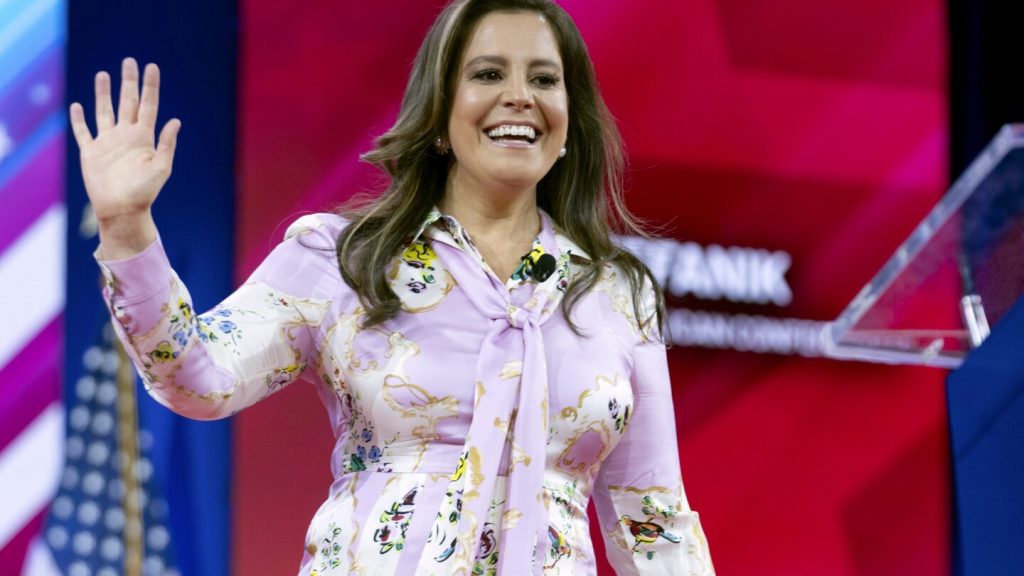President-elect Donald Trump has chosen Rep. Elise Stefanik, a loyal ally with little foreign policy experience, to serve as his ambassador to the United Nations. At 40 years old, Stefanik has been a strong supporter of Trump and has served as House Republican Conference Chair. She will be facing challenging issues at the U.N., including wars in the Middle East and Ukraine, and nuclear programs in North Korea and Iran. She will also be interacting with ambassadors from countries like Russia, China, North Korea, and Iran on a daily basis.
Stefanik will be succeeding U.S. Ambassador Linda Thomas-Greenfield, a career diplomat, and will be a member of Trump’s Cabinet. In his first administration, Trump chose Nikki Haley as the U. N. ambassador, who had little foreign policy experience. Haley later resigned and challenged Trump for the GOP nomination. She was succeeded by Kelly Craft, former U.S. ambassador to Canada. John Bolton, a former U.S. national security adviser, sees Stefanik as a potential presidential candidate for 2028 and believes her role as U.N. ambassador will provide her with the necessary foreign policy experience.
Stefanik, born and raised in upstate New York, graduated from Harvard and worked in George W. Bush’s White House. She became the youngest woman ever elected to Congress in 2014 and has since risen in power within the House Republican Conference. Known for her loyalty to Trump, Stefanik actively campaigned for him during the GOP primary and defended him during his impeachment trials. While she lacks foreign policy experience, her pick as U.N. ambassador solidifies Trump’s preference for loyalty over experience in his second administration.
Stefanik has been vocal about her support for Israel and has accused international organizations of antisemitism in relation to the Israel-Hamas conflict. She has called for a reassessment of U.S. funding for the United Nations and has pushed for blocking American support for humanitarian aid to Palestinians. Her departure for the United Nations would mean a loss of a crucial Republican vote in the House, but her district is expected to remain Republican in a special election. Trump’s views on the U.N. include advocating for a less interventionist foreign policy and questioning the utility of international alliances.
Overall, the appointment of Elise Stefanik as U.N. ambassador reflects Trump’s prioritization of loyalty in his administration. Stefanik’s lack of foreign policy experience may present challenges, but her strong support for Trump and vocal stance on certain foreign policy issues align with the President’s views. It remains to be seen how Stefanik will navigate the complex international issues at the U.N. and represent the U.S. on the global stage.


